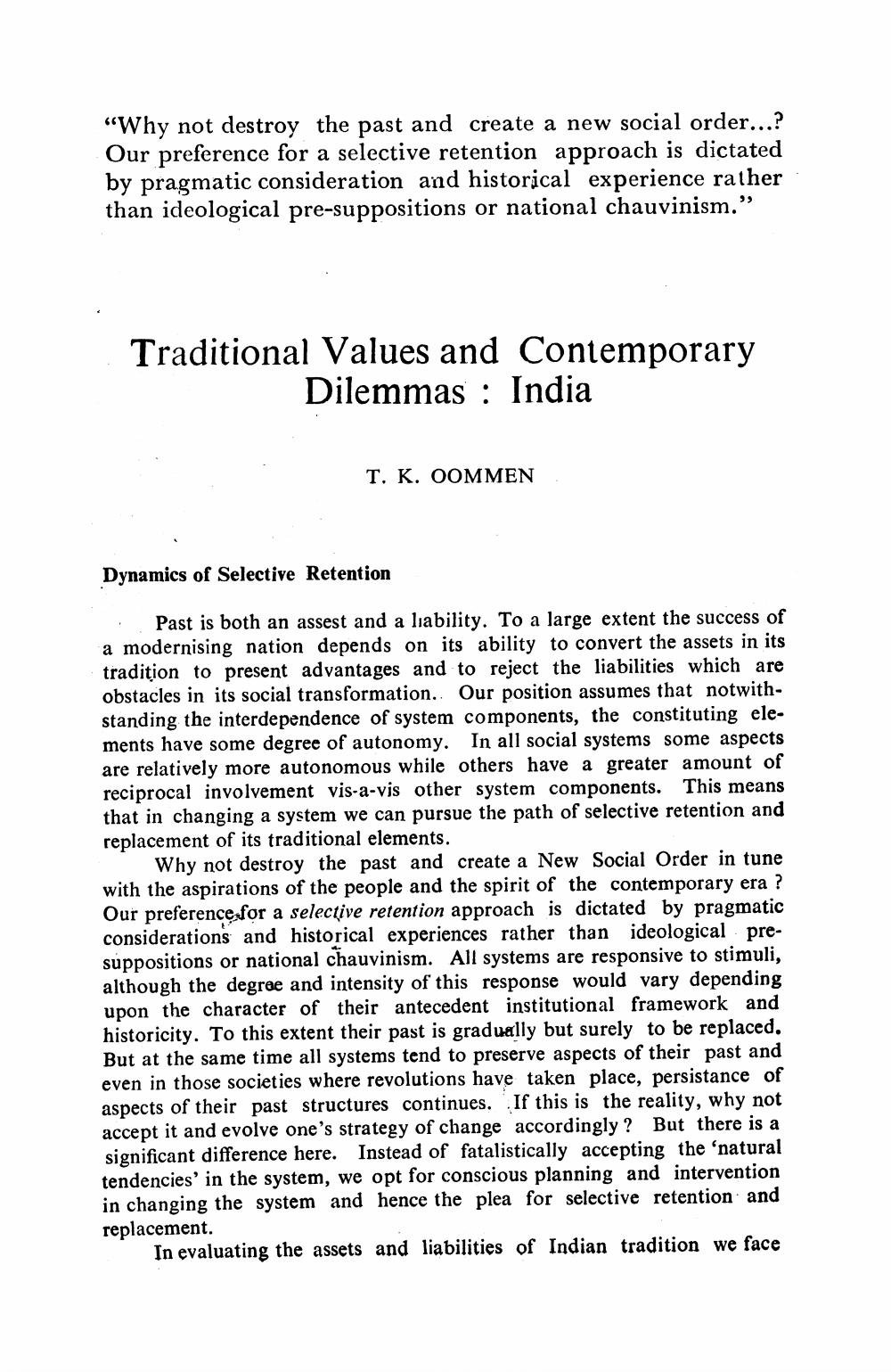Book Title: Traditional Values And Contemporary Dilemmas India Author(s): T K Oommen Publisher: T K Oommen View full book textPage 1
________________ “Why not destroy the past and create a new social order...? Our preference for a selective retention approach is dictated by pragmatic consideration and historical experience rather than ideological pre-suppositions or national chauvinism." Traditional Values and Contemporary Dilemmas : India T. K. OOMMEN Dynamics of Selective Retention : Past is both an assest and a liability. To a large extent the success of a modernising nation depends on its ability to convert the assets in its tradition to present advantages and to reject the liabilities which are obstacles in its social transformation. Our position assumes that notwithstanding the interdependence of system components, the constituting elements have some degree of autonomy. In all social systems some aspects are relatively more autonomous while others have a greater amount of reciprocal involvement vis-a-vis other system components. This means that in changing a system we can pursue the path of selective retention and replacement of its traditional elements. Why not destroy the past and create a New Social Order in tune with the aspirations of the people and the spirit of the contemporary era ? Our preference for a selective retention approach is dictated by pragmatic considerations and historical experiences rather than ideological presuppositions or national chauvinism. All systems are responsive to stimuli, although the degree and intensity of this response would vary depending upon the character of their antecedent institutional framework and historicity. To this extent their past is gradually but surely to be replaced. But at the same time all systems tend to preserve aspects of their past and even in those societies where revolutions have taken place, persistance of aspects of their past structures continues. If this is the reality, why not accept it and evolve one's strategy of change accordingly? But there is a significant difference here. Instead of fatalistically accepting the 'natural tendencies' in the system, we opt for conscious planning and intervention in changing the system and hence the plea for selective retention and replacement. In evaluating the assets and liabilities of Indian tradition we facePage Navigation
1 2 3 4 5 6 7 8 9 10
